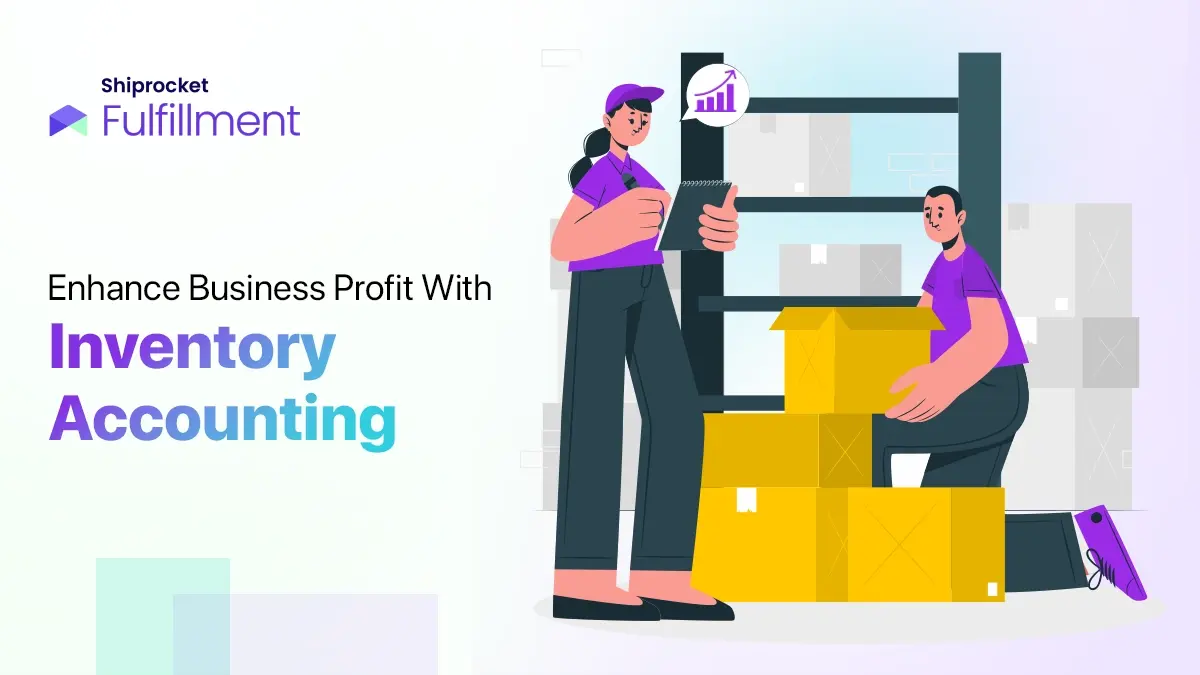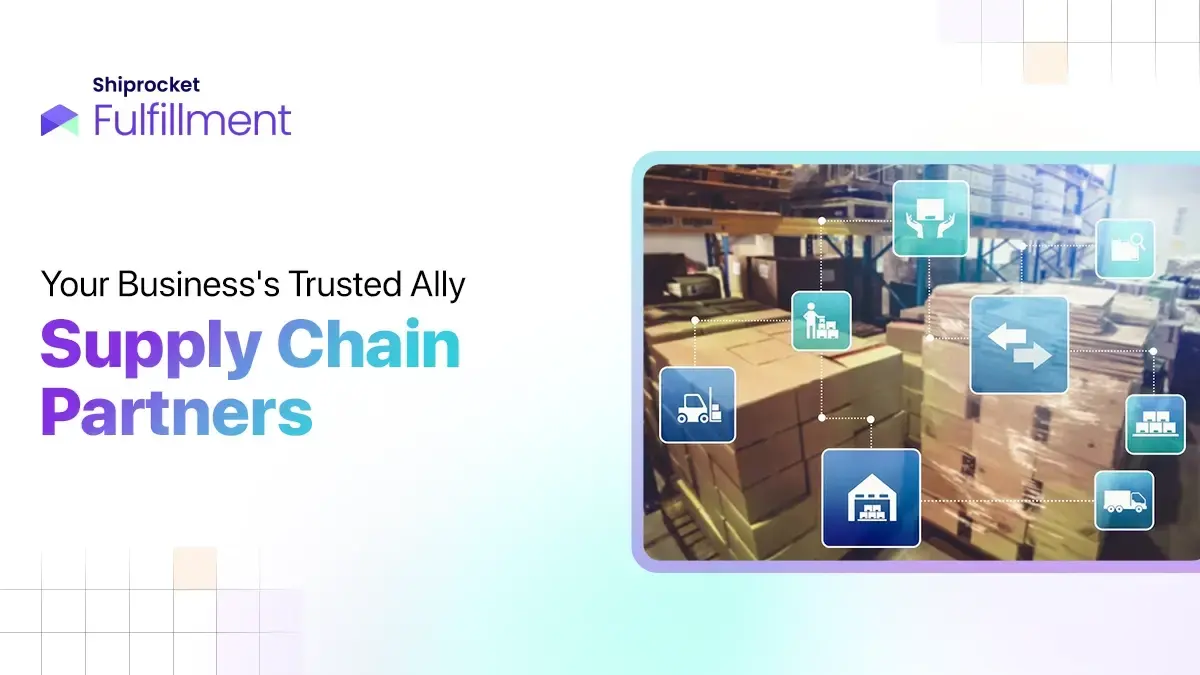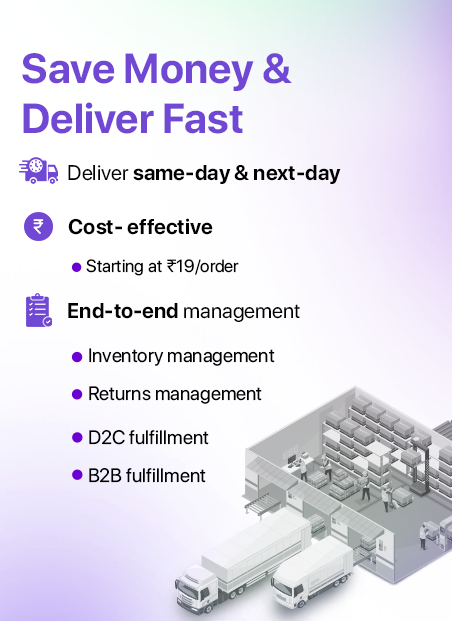- Understanding ERP Inventory Management
- What Does an ERP Inventory Management System Include?
- Benefits of ERP Inventory Management
- Does Your Business Need ERP Inventory Management?
- How Can ERP Inventory Management Improve eCommerce Fulfillment?
- Outsource eCommerce Fulfillment With Shiprocket Fulfillment
- Conclusion
- Frequently Asked Questions(FAQs)
Inventory management is an integral part of your eCommerce fulfillment supply chain. If you are not handled correctly, you can face several challenges. These challenges can turn out to be very heavy on your pocket. Therefore, you need a centralized inventory management system that can help you eliminate most challenges and make your supply chain more efficient.
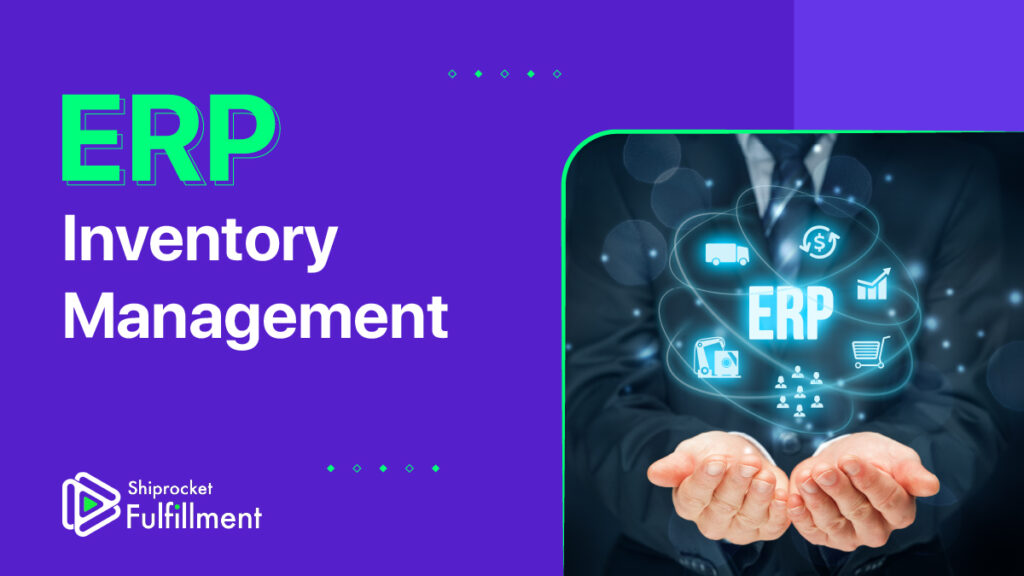
ERP inventory management is one such system that can help you reduce inefficiencies and make your supply chain more organized.
Understanding ERP Inventory Management
ERP is short for Enterprise Resource Planning. Enterprise Resource Planning inventory management refers to a unified management approach where businesses can manage all operations like inventory management, order management, finance, logistics, and several other functions in one place.
ERP inventory management gives businesses a singular view of all operations that can aid decision making, supply chain management, and enhance overall business performance.
What Does an ERP Inventory Management System Include?
An ERP inventory management system includes several features. It is designed to amalgamate the operations for one view. Some of the features include –
- Multichannel order fulfillment
- Order management
- Warehouse management
- Stock management
- Payment gateways
- Logistics integrations
- Business analytics
Benefits of ERP Inventory Management
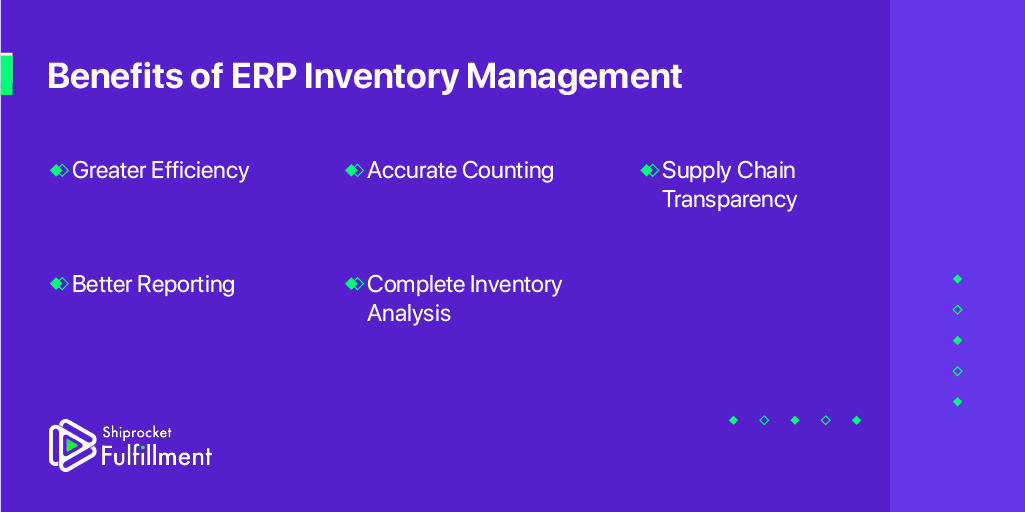
Greater Efficiency
With an ERP inventory management system, you can reduce the time for managing operations and automate daily tasks. This means that you can increase production and get more outcomes in less time
Accurate Counting
An ERP inventory management system tracks and reports inventory at shorter intervals. This means that you will have real-time data of excess inventory, shortages, any replenishment is needed, and other inventory metrics. It also updates your inventory based on product transfers, shipping, and receiving.
Supply Chain Transparency
There are fewer chances for mistakes and mishaps with a centralized inventory management system. Also, all information is communicated equally .since all partners are connected directly. An ERP inventory management system also helps with syncing order and shipping information, allowing for complete supply chain transparency.
Complete Inventory Analysis
An ERP inventory management system provides data for every inventory stage like the cost of goods sold, shrinkage, turnover rates, etc. This means that you can analyze the critical inventory metrics and improve your efficiency accordingly.
Better Reporting
With more data at hand and detailed insights, you can dive deep into data and make much more informed decisions. Since ERP inventory management systems consider the entire supply chain, your insights are much more affluent, and you can decide better for your business.
Does Your Business Need ERP Inventory Management?
Not every business requires an ERP inventory management system. However, having it can be a significant boost.
If you are a business looking to expand and orders are going to increase, an ERP inventory management system can be very beneficial.
Also, if your business has complex workflows and a complicated supply chain, an ERP inventory management system can help make the entire process more systematic, and you can avoid errors.
How Can ERP Inventory Management Improve eCommerce Fulfillment?
The eCommerce fulfillment supply chain also consists of inventory management, warehouse management, order receiving, packaging, shipping, and returns management.

With an ERP inventory management system, you can simplify the entire eCommerce fulfillment supply chain by compiling data in a single place and updating information in real-time. This will help you optimize your warehouse space, efficiently utilize the inventory, synchronize your shipping and returns data, and notify you to replenish your stock.
Outsource eCommerce Fulfillment With Shiprocket Fulfillment
Even though an ERP inventory management system may seem like a lucrative option, it can be challenging to purchase and maintain. It is an expensive capital investment.
If you want to expand your eCommerce business and increase your average order volume, you must bring in experts to free your time and bandwidth. 3PL fulfillment providers like Shiprocket Fulfillment can help you do this.
Even though a centralized inventory management system can help reduce the hassles of your warehouse, decentralizing your inventory is the key to reaching most customers in India.
With Shiprocket Fulfillment at your disposal, you can store inventory in multiple warehouses across India and fulfill orders based on the demand in the region.
This means that you can store inventory closer to customers and reduce delivery time and shipping costs on each order.
Not just this, you can also provide a competitive advantage to your customers by giving one-day and two-day delivery options. With the significant number of successful deliveries, you can also reduce your RTOs by 60%.
Conclusion
An ERP inventory management system is a revolutionary concept to reduce the manual load and increase efficiency for your eCommerce business. However, as it is an expensive and critical investment, make sure that you evaluate all other options before making this call.
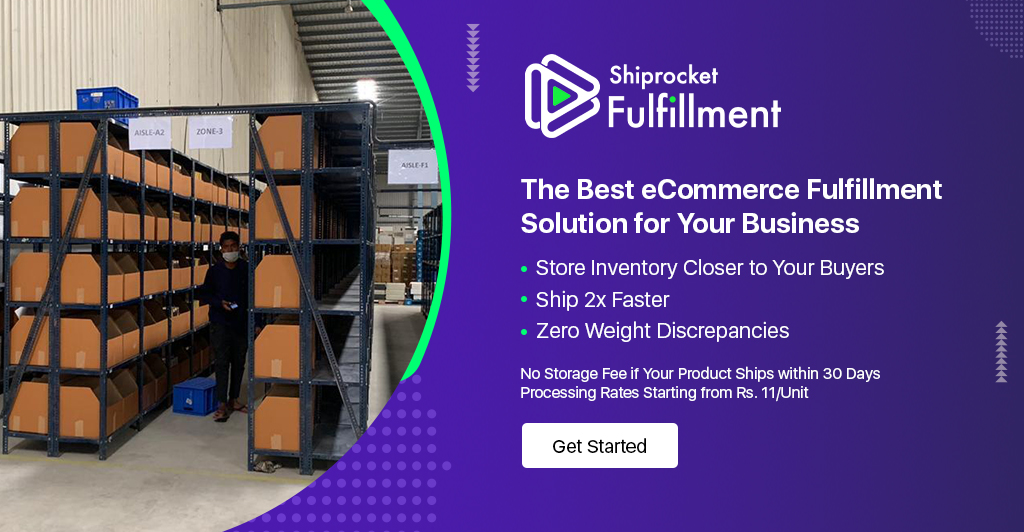
Frequently Asked Questions(FAQs)
ERP simplifies warehouse activities such as receiving, picking, packing, and shipping products. It identifies efficient methods for executing these tasks, leading to time and cost savings, as well as improved operational efficiency within the warehouse.
ERP helps eCommerce enterprises optimise their shipping services. This includes the ability to easily select from a range of shipping and transportation options based on factors such as delivery time, cost considerations, and specific handling requirements.
Among eCommerce businesses, the predominant choice for an ERP solution is SAP. Renowned for its AI-driven capabilities, SAP seamlessly integrates into eCommerce enterprises of all scales. Other notable ERP options include Infor, DDI System, Intact, Aptean, NetSuite Oracle, Acumatica, and various others.


